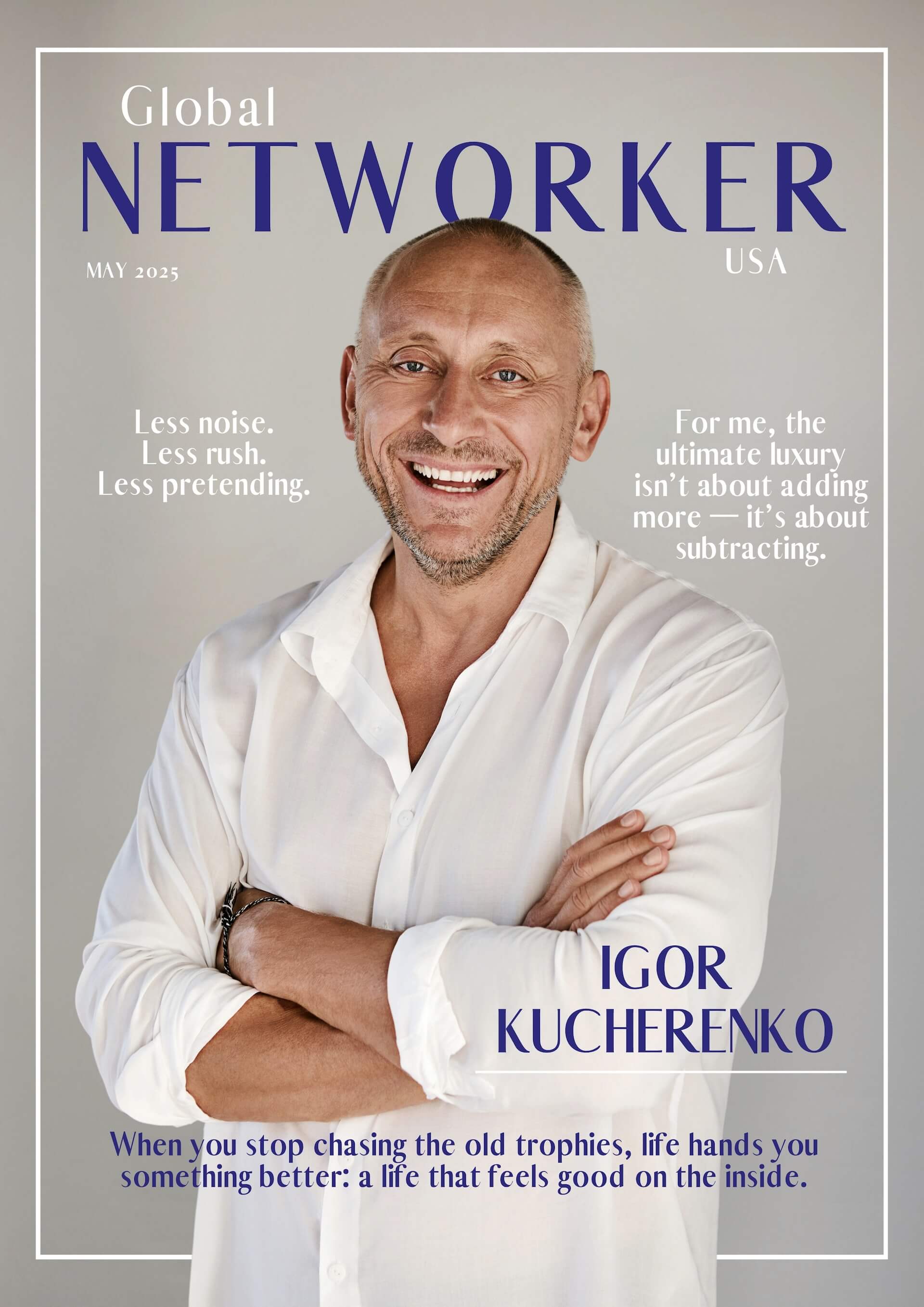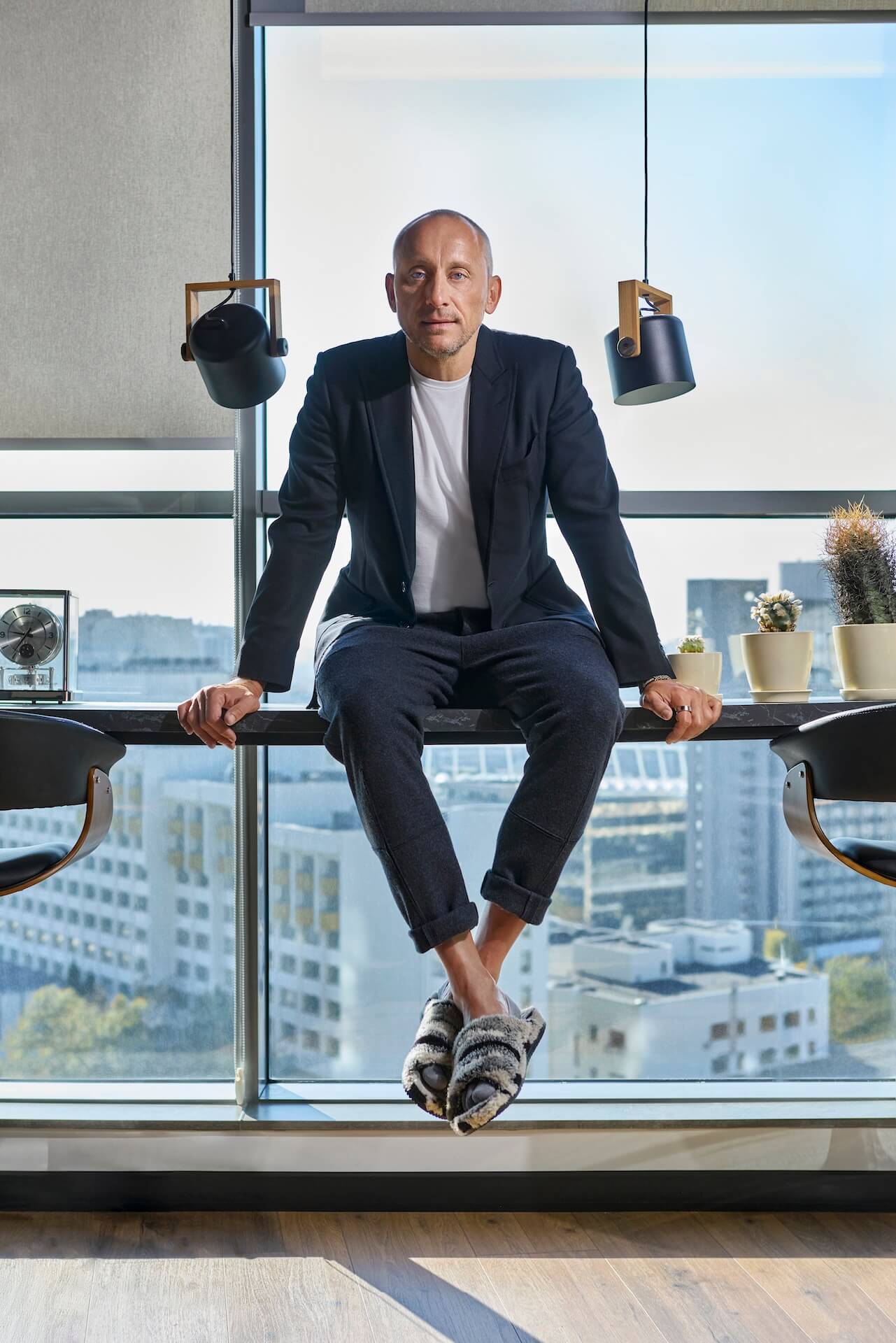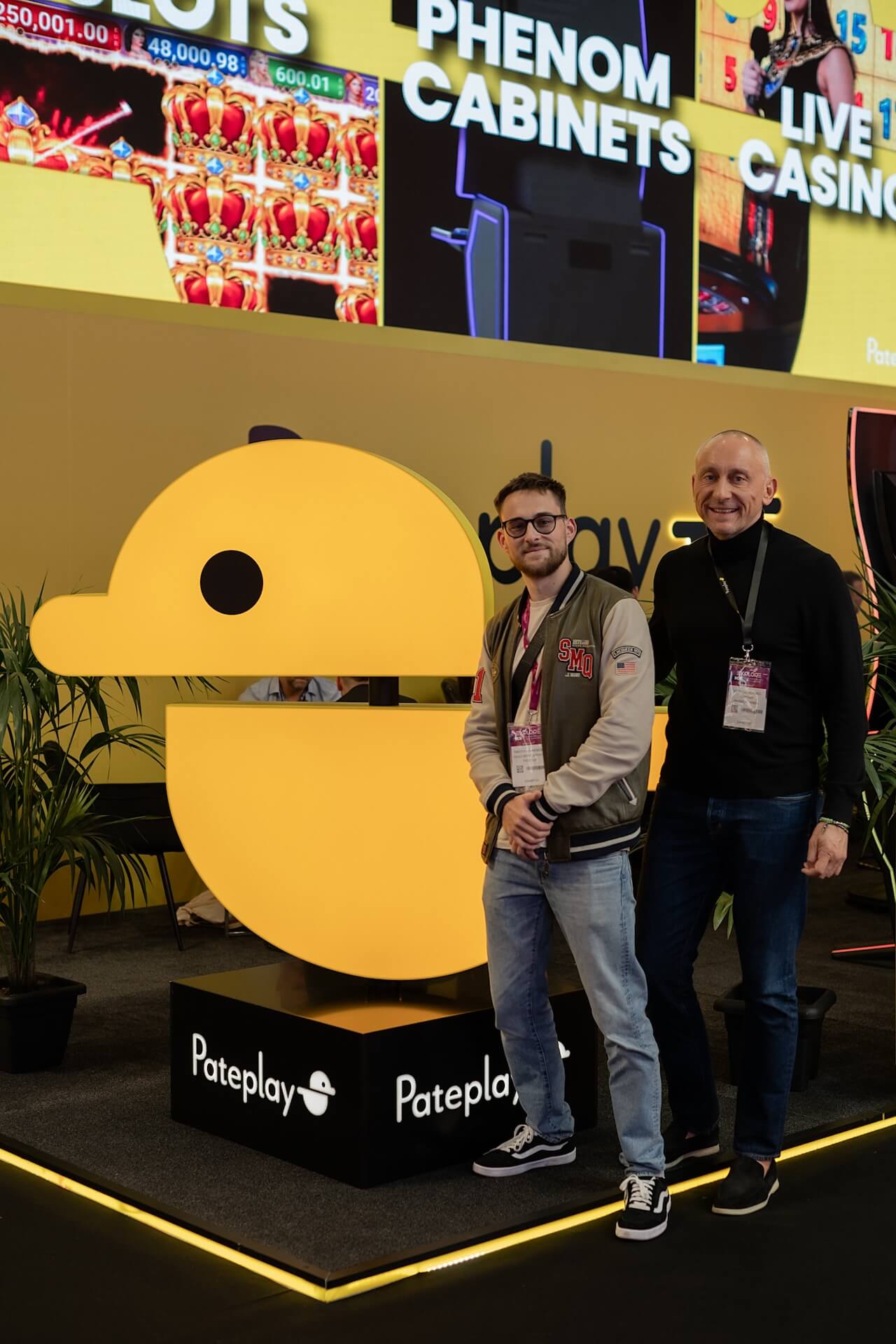Global marathons, iGaming and crypto: Igor Kucherenko, the citizen of the world

On the cover: Igor Kucherenko
As a driving force behind Pateplay’s African expansion and the co-founder of HitBit Pro, a member of the Forbes Business Council, Igor Kucherenko brings a rare combination of strategic vision and entrepreneurial agility. Whether pioneering seamless financial transactions or setting new standards in digital entertainment, his journey shows how experience across industries — from fitness to finance — fuels transformative leadership. In this conversation, we explore how relentless innovation, global thinking, and a passion for building better systems are shaping the future of gaming, crypto, and beyond.

Igor Kucherenko
Igor, you often highlight the importance of curiosity, travel, and continuous reinvention as core strategies for life and career. Why do you believe that refusing to settle — both professionally and personally — is the key to building a truly global mindset and a future-proof life?
The world is changing so fast that the future doesn’t just favor the bold — it barely remembers the comfortable. Curiosity isn’t a hobby anymore; it’s survival gear. Travel isn’t just a vacation; it’s a crash course in how little we know. And reinvention? It’s no longer a midlife crisis — it’s the business model.
In a reality where expertise has an expiration date and certainty is a myth sold by self-help books, the real power belongs to those who stay endlessly curious, wildly adaptive, and cheerfully unfinished.The people who thrive aren’t the ones who have it all figured out — they’re the ones who know the figuring out never ends.
In the end, future-proofing your life isn’t about locking it down. It’s about throwing the map out the window and learning how to dance with the wind.

Igor Kucherenko
It’s common to see you looking very simple and very active. You often say that redefining luxury helps people build a richer, more meaningful life. Why are the true symbols of success today not brands but experiences, and how does rejecting traditional luxury shape a healthier being?
Once upon a time, luxury was simple: buy the loudest car, the biggest house, the flashiest watch — and hope nobody noticed how tired you were inside.
Today, the rules have changed. Real wealth is silent. For me, the ultimate luxury isn’t about adding more — it’s about subtracting. Less noise. Less rush. Less pretending. It’s not booking a seven-star hotel —it’s owning the time to watch a sunset without rushing through it like a checklist item.
I’m not impressed by brands anymore. I’m impressed by men and women who own their days, who say ‘no’ when it’s uncomfortable, and who don’t need to post a plane ticket to prove they’re going somewhere.
Rejecting traditional luxury doesn’t mean rejecting beauty or comfort — far from it. It means choosing experiences over possessions. It means trading status anxiety for sovereignty. It means wearing your values, not your price tags. It means understanding that owning yourself — your time, your health, your emotions — is the highest form of status there is.
Rejecting traditional luxury isn’t a rebellion — it’s a quiet revolution.
Ironically, when you stop chasing the old trophies, life hands you something better: a life that feels good on the inside — not just one that looks good on Instagram.

Igor Kucherenko
You set a lot of sports activities in your timetable — running global marathons, maintaining constant gym training, and practicing cold therapy. How did these endurance principles and fitness mindset become a model for launching groundbreaking projects across continents?
When we started the Sportlife gym chain 21 years ago, the concept of a “fitness industry” in Ukraine was about as developed as a surfing academy in the middle of the Sahara. There were local gyms, sure, mostly gritty, dim spaces filled with aging equipment and even older ambitions. But a true culture of fitness? That was still waiting to be invented.
I had just returned from Los Angeles, where fitness is practically a religion and every third person you meet is training for their fifteenth triathlon. I was a certified fanatic: running marathons, crossing deserts, chasing horizons that didn’t want to be caught.
Enter Dmitry Ekimov — my soon-to-be partner. A man with zero passion for gym life, no marathon medals on his shelves, and not even a passing addiction to Lycra.
Thank God for that.
Where I was all fire, adrenaline, and starry-eyed inspiration, Dmitry was cold logic and risk assessment. I was the heartbeat. He was the calculator. And that unlikely combination — the sweaty runner and the cool strategist — is exactly why Sportlife didn’t just survive. It thrived.
Building a fitness empire isn’t so different from training for an ultramarathon. You start with excitement. You hit a wall. You cramp up emotionally, financially, and sometimes existentially. The amateurs stop. The professionals adjust their pace, fix their breathing, and keep moving — bloody-minded and half-insane.
Sportlife wasn’t about selling gym memberships. It was about hacking into the cultural software of a country — rewriting people’s beliefs about their own bodies, their own limits, their own possibilities. If I were alone, it would’ve been a beautiful, sweaty failure. Without Dmitry’s cold blood and hard math, passion alone would have eaten itself alive.
Today, business, sport, pleasure, travel, creation — they all swirl together in one seamless ecosystem for me. No boundaries. No neat little folders. Just one big, chaotic, magnificent life — where endurance isn’t an option. It’s the operating system.

Igor Kucherenko
How cutting-edge finance and entertainment industries evolve where traditional institutions fail — and why Africa is the place to watch?
If you think the future is being built only in Silicon Valley or some glass tower in Singapore, you’re not looking closely enough. The real revolution is happening in places most traditional institutions once wrote off — and Africa is at the front of the line.
I’ve been working across the African continent for more than fifteen years, and the transformation I’ve witnessed is beyond anything textbooks could predict. Africa doesn’t just adapt to new trends — it leaps over old systems entirely. Take fintech: most courses on innovation now start with the case study of M-Pesa — a mobile money system born in Kenya, not California. While traditional banks debated policies, Africa’s entrepreneurs just reinvented the rules — building financial ecosystems using nothing but mobile phones, creativity, and pure necessity. The same is happening now in entertainment, energy, and logistics — industries where traditional players are either too slow, too bureaucratic, or too arrogant to pivot.
Africa’s population is booming. Its economies are diversifying. Its hunger for innovation isn’t just theoretical — it’s survival-driven, and that’s the most powerful force there is. And if you think the next tech billionaire is coding away in Silicon Valley, you’re missing the real picture: they’re already here — building solutions not for headlines, but for real, everyday life.
The smartest investors, creators, and entrepreneurs I know aren’t asking if Africa is the future. They’re asking how fast they can catch up before they’re left behind.

